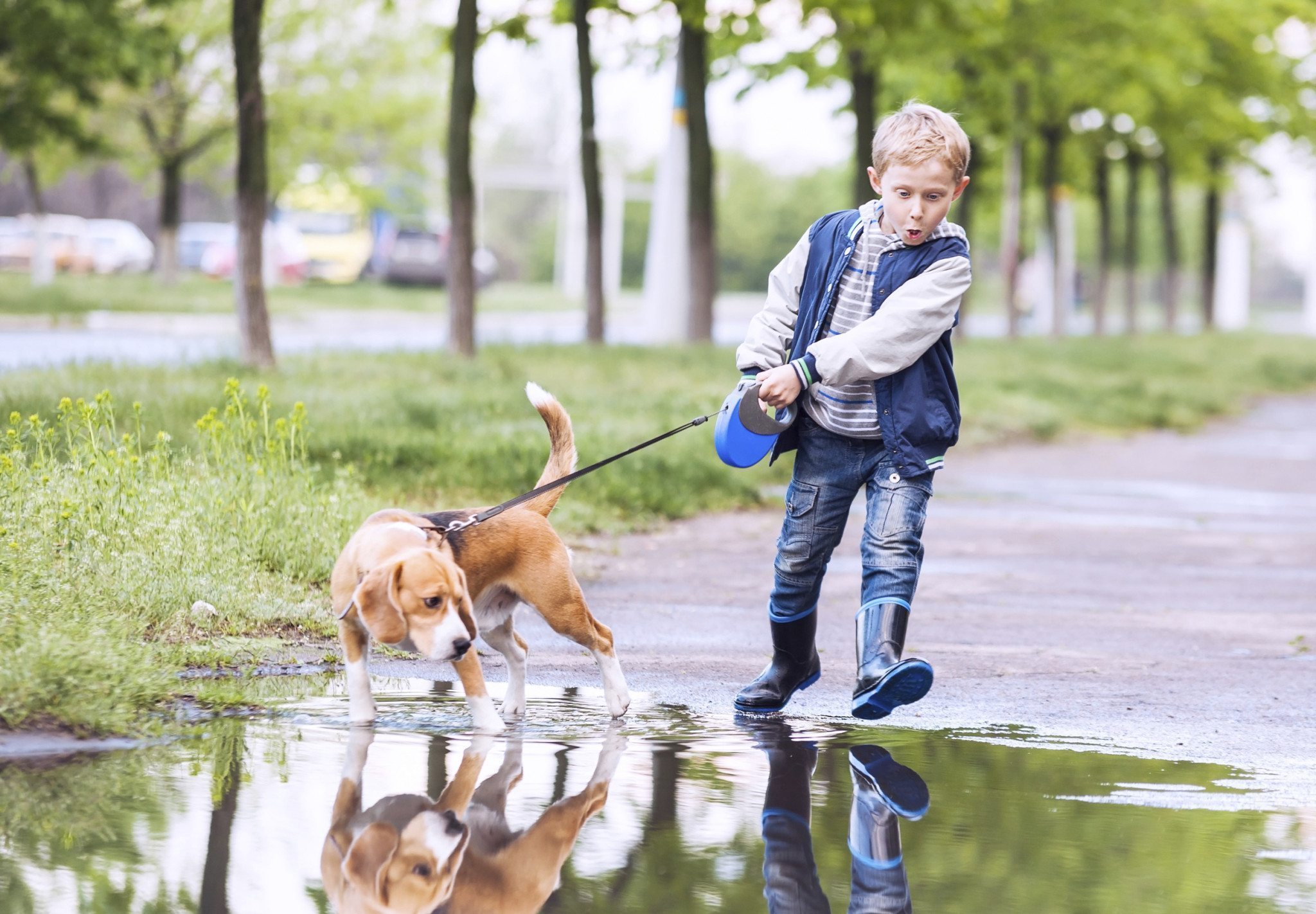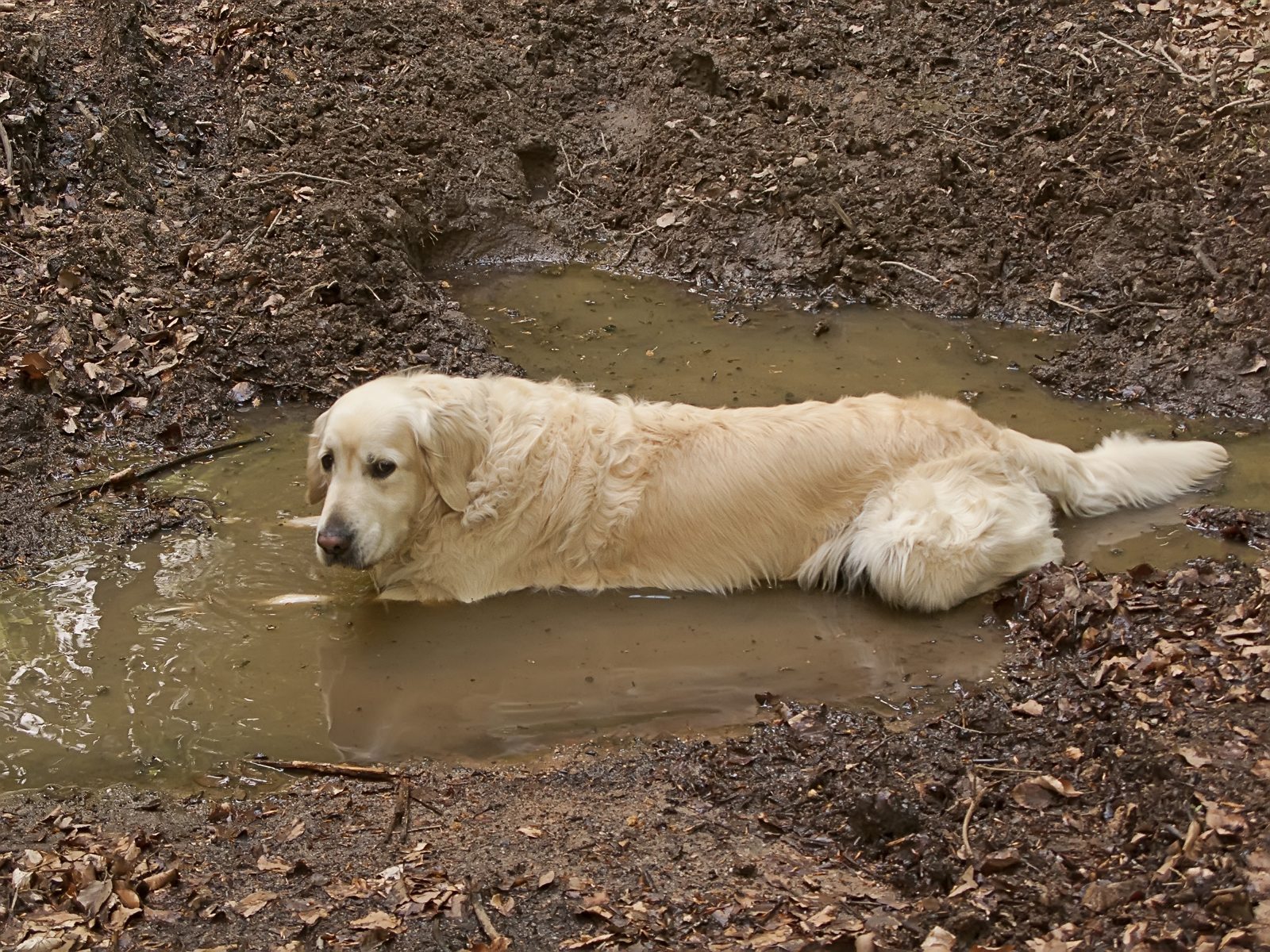Top 3 Pet Health Hazards In Puddles?
Bad weather, especially when it is raining, can make it difficult to walk your dog. When the weather finally clears, it feels great to be able to get outside and walk your dog in the rain-washed landscape that smells fresh and clean. However, as much as you may want to both run and let off some steam, it is still a good idea to keep a leash on your dog to avoid the inevitable puddles on the roads and sidewalks. More often than not, there is much more in those puddles than water or mud.
Urine
Depending on where you live, animals such as rodents, deer and other wild animals can be infected with leptospirosis bacteria that thrive in wet areas. Though they are infected and still maintain good health, they can still pass on leptospirosis organisms through their urine in puddles of water that gather throughout the landscape. It doesn’t mean your dog will become sick if exposed to leptospirosis, however those that do can experience kidney failure, diarrhea, loss of appetite and vomiting.
A blood and urine test can confirm the diagnosis and treatment involves supplemental fluids and antibiotics. Over-vaccination is a concern, however depending on where you live and your dogs habits and activities, it might be a good idea to have your dog vaccinated for leptospirosis. Your veterinarian will know if the disease has been reported in your area. If you and your dog go hiking or camping often, are exposed to wildlife or walk in the puddles after the rain, then the risks outweigh the benefits. Regardless, a discussion of the potential risks should always be considered before vaccinating your dog.
Feces
One of the reasons why you cannot just sip water from a stream when hiking or backpacking through the wilderness is because the water is most likely contaminated with feces. The same is true for puddles on the street, walkways and parks. In addition to puddles, dog parks are another source for contaminated areas.
For example, Giardia is a tiny organism that lives in the intestinal tract of a variety of animals including domestic and wild. When dogs are exposed to this organism, they can experience vomiting, loss of appetite and diarrhea. Plus, it is highly contagious and can be transmitted to other pets and humans. Your veterinarian can prescribe medications to get it under control, however avoiding puddles and places of pooled water are a good precaution.
Ethylene Glycol
Ethylene glycol is the active ingredient found in antifreeze. The tiniest amount can cause irreversible kidney failure and other symptoms in your dog if consumed through drinking water from puddles. The other symptoms include weakness, loss of appetite, diarrhea, vomiting and lethargy. Blood, urine and kidney biopsy are the tests used to diagnose but many times the prognosis is not good.
Beginning in 2012, manufacturers of antifreeze were required to add a substance that gave a bitter taste with the hopes of deterring any animal from drinking water with remnants of antifreeze in it. Unfortunately, antifreeze leaks from underneath cars and trucks so it is especially important to avoid puddles in parking lots and structures.
Be Aware
It doesn’t mean you have to keep your dog indoors or quit going for those long walks. Be aware that there are health hazards everywhere you go when it comes to puddles of water. Be aware of those hazards and watch for any symptoms that may arise in your dog. Always seek medical attention right away, if needed.
Reviewed and approved by Dr. David L. Roberts, DVM











